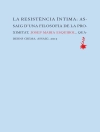The publication presents research results on a multitude of knowledge exchange processes in post-enlightenment Europe. These focus on the question in how far deeply rooted processes of knowledge exchange by transnational intellectual discourses and international expert communities have contributed to a variety of networks of European intellectual identities and research practices. These practices again constitute a fertile framework for de-territorialised and de-nationalised exchange of knowledge that might contribute to contagious processes of emancipation, cooperation as well as problem solving.
Cuprins
Introduction.- Social epistemology as the philosophical framework for investigating knowledge-communities in Europe.- Dissemination of knowledge in European scientific networks in 18th century: the case of oxygen.- The scientific Paths to Europeanization: A critical sociological perspective upon the European Space Program.- Expert communities and security: Neofunctional integration in European policing practices.- The role of visible and invisible hands: Scientific communities and political integration.- The European Union’s Research and Innovation Policy as intentional community building.-Experts in EU Policy-Making: towards evidence-based problem-solving in research and innovation policy?.- Educating the people. Spanish intellectuals and reform strategies in the 19th century.- Networking in Science and Popular Science: An Anglo-German Knowledge Space in the 19th Century.
Despre autor
Dr. Bertold Schweitzer is Lecturer in Politics and Philosophy at the University of Dundee.
Dr. Thomas Sukopp is Senior Lecturer in Philosophy/Didactics of Philosophy at the University of Siegen.












